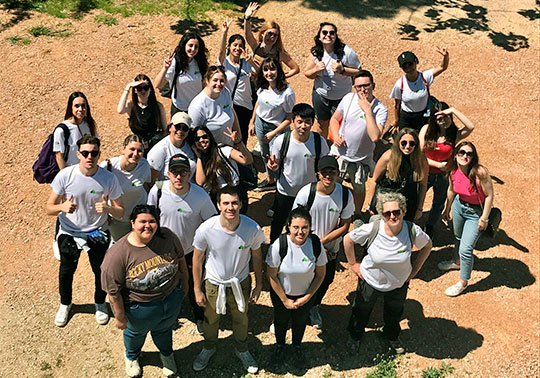
The Chair for New Green Transition and the Information and Promotion Service for Students of the UV organised a field trip with third-year students of the Degree in Tourism of the Faculty of Economics, who discovered first-hand the importance of the landscape and wildlife of the lake and the need to protect it.
The Albufera is the largest freshwater lake in the Iberian Peninsula, and was declared Natural Park in 1986. The lake is a magnet for birds, a quality that led to its recognition as a Special Protection Area for Wild Birds (SPA). The land has always been an ideal place for rice fields and, despite the continuous anthropic transformation of the environment, the Albufera offers a wealth of landscapes and habitats of environmental interest.
Last Friday May 5th, a group of students from the Degree in Tourism of the Universitat de València visited the Natural Park. In particular, they took a walk from the Port of Catarroja to the Tancat de la Pipa, where they got to know first-hand the situation of the lake and also collaborated in the removal of plastics.
As Aurora Pedro, director of the Chair for New Green Transition, points out, this visit was organised with the aim of “making students aware of the need to protect this landmark space and to contribute to its preservation”.
It is important for society to know and appreciate the varied flora and fauna of the Natural Park, as well as the actions that have been carried out in recent decades to restore habitats and recover species and ecosystems. The Acción Ecologista-Agró Association collaborated in the visit and explained both the history and the current situation of the Natural Park, and made special reference to the great impact that there will be if the expansion of the Port of València is carried out. If the current size of the Port has already reduced the strip of land separating the Albufera from the sea and has affected the size of the beaches of El Saler and El Perrelló, an extension such as the one they want to carry out will destroy the lake in the not too distant future.








